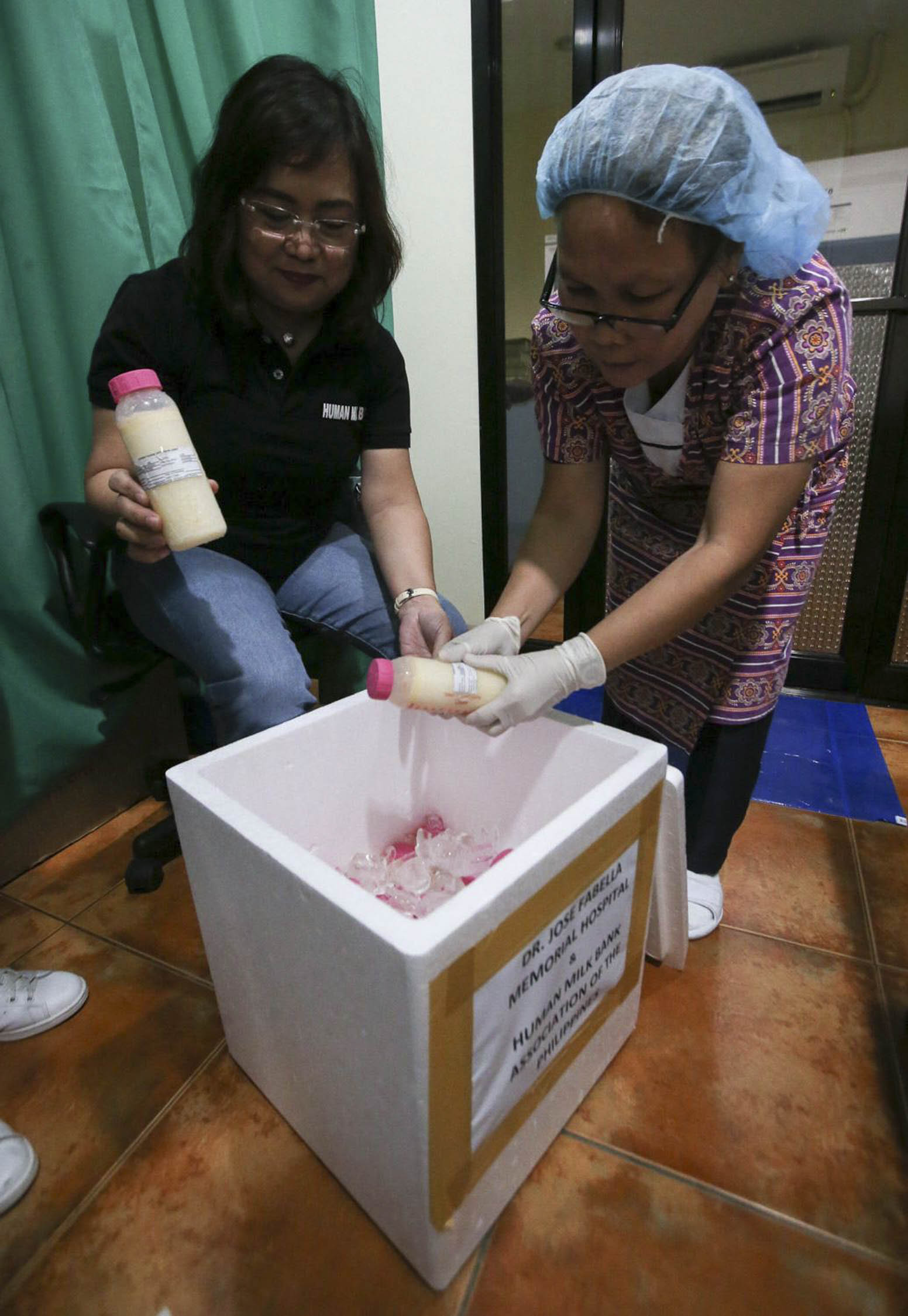More breast milk needed for babies at evacuation centers

PRECIOUS CARGO Dr. Estrella Olonan-Jusi (left), Human Milk Bank Association of the Philippines president, says bottles of frozen pasteurized breast milk sent by the Dr. Jose Fabella Memorial Hospital Human Milk Bank inManila, will be given to infants in evacuation centers in Batangas province. —LYN RILLON
Infants, or children from 0 to 1 year old, face higher risks in evacuation centers as the Taal Volcano continued to show signs of an imminent hazardous eruption, health workers said.
Pediatrician Estrella Olo¬nan-Jusi, president of the Human Milk Bank Association of the Philippines, said they needed more supply of breast milk, which is rich in antibodies, to support newborns and infants across hundreds of evacuation centers in the provin¬ces of Batangas, Laguna and Cavite.
But since Taal’s phreatic (steam-driven) eruption last week that displaced thousands of families, volunteer health workers have gathered supply enough only for two evacuation centers—the Bauan Technical High School in Bauan town and another center in Lipa City, both in Batangas province.
There were at least 120 infants at the Bauan Technical High School alone, cup-fed with breast milk thrice a day.
Running out
The initial 17 liters of breast milk collected from the milk banks of Dr. Jose Fabella Memorial Hospital, Ospital ng Maynila Medical Center and Justice Jose Abad Santos General Hospital, all in Metro Manila, have run out, said Sherell Abante, Bauan municipal nurse.
“There are also just three of us [nurses] on rotation for the cup feeding in classrooms [used as evacuation rooms],” Abante said on Monday.
Bauan Technical High School is one of the biggest evacuation centers in Batangas, hosting at least 13,000 families from Taal and Lemery towns.
Mothers in evacuation centers have been encouraged to breastfeed despite the stressful situation they are in, Abante said.
Infants are most at risk of diarrhea, respiratory infection and other diseases considering the hygiene and water supply in evacuation centers, Jusi said.
She said the 17 human milk banks established in government and private hospitals, mostly in Metro Manila, normally allotted 10 percent of their stock for distribution during times of disaster.
But as the Taal situation drags on, Jusi said they would need more lactating mothers to donate through hospitals and health centers.
Jusi said it was important for donors to express their breast milk at milk banks, which have the right equipment to pasteurize and store breast milk for a longer period.
In Batangas City, a woman drove all the way from Angono, Rizal, to donate pouches of her frozen breast milk only for nurses to dispose of them as they were unsure if the milk was properly handled or stored during transport.
“In times of an emergency, we give breast milk [to infants] any time, but [formula milk and other milk substitutes] is a no-no,” Jusi said.
“At least 3 to 10 ml [of breast milk] will go a long way,” she added.
She said they were also discouraging the use of formula milk because the lack of clean utensils and sterilized water to mix with the powdered milk in evacuation centers might only expose infants to diseases.














